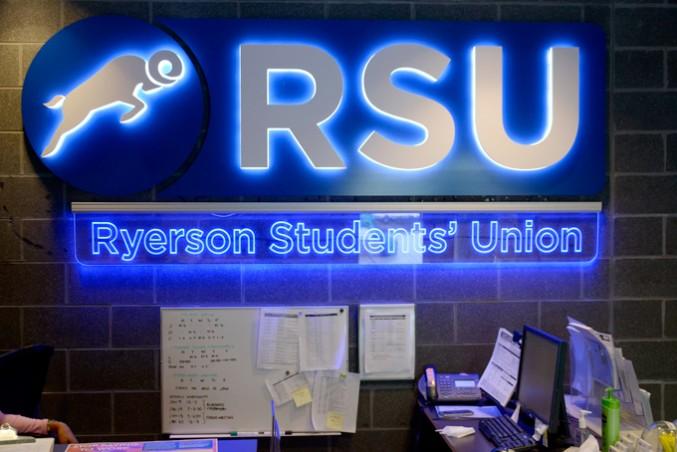By Keith Capstick
On April 26, a motion was passed unanimously at the Ryerson Students’ Union (RSU) board of directors meeting requesting that this past year’s executive present a report to students on the effectiveness of the services offered by their relationship with the Canadian Federation of Students (CFS) by September 2016.
The motion was supposed to be tabled at the RSU’s annual general meeting (AGM), but was moved to the board meeting when the AGM lost quorum.
The CFS is a national advocacy group that the RSU pays $465,000 to each year to be the Ryerson community’s voice on a national level and in country-wide student campaigns, in conjunction with more than 50 other post-secondary communities around the country.
The motion cites students not knowing “what the CFS even does” and the RSU’s responsibility to make sure students’ money benefits Ryerson students as reasons for the requested review of CFS services.
Incoming RSU president Obaid Ullah pointed to students’ right to learn about who they’re affiliated with and pay money to.
“It’s great to see students pay attention to the RSU and the functionality. It seems that some students are curious about who the RSU is affiliated with,” Ullah said in a statement. “The students have a right to ask information on how the RSU is run and they seem to be using that right.”
The CFS is often a popular topic within discussions of student action and policy. The group participates in lobbying on a federal and provincial level for students interests particularly around discussions of equity and diversity, tuition increases and environmental sustainability.
Each undergraduate student at Ryerson pays $15 to the CFS and that amount is then split up and given to CFS national and CFS-Ontario (CFS-O), the federation’s provincial branch. According to Ullah, who was also last year’s vice-president operations, about $7 goes to CFS-O and $8 goes to CFS national.
The CFS has engaged in multiple legal disputes over the last decade, particularly in Quebec, with various student unions looking to defederate from the organization. Most prominently a four-year long legal battle with the McGill post-graduate student society (PGSS) which ended with the PGSS leaving the CFS. Additionally, in 2008 Cape Breton University’s union presented a petition with over 90 per cent of its students supporting defederation but the petition was denied by the CFS. The CFS then sued the Cape Breton Students’ Union for $295,000. The union later filed for bankruptcy.
Last year’s RSU president and current CFS-O Spokesperson, Rajean Hoilett, welcomes this review of the federation’s services but stresses the importance of the CFS being involved in the consultation process.
“It is important that before the report comes out that we have an opportunity to talk about the value of being a member of the federation,” Hoilett said. “More than that to have a space to answer questions of whoever is conducting this review and that we are given space to critically engage in the discussion on campus.”
Hoilett also said that he and CFS-O are looking forward to this opportunity to engage with both the RSU and to spend time on campus engaging with students in person to ensure they’re aware of the work the CFS is doing.
“I think that engaging in the real work in the federation, the campaigns and services of our organization is a really great way for students to learn more but also [we need to make] ourselves more available for students to come by, ask a question to hear more about our organization,” Hoilett said.
Hoilett also mentioned that the CFS would be announcing a new tuition fee campaign to work from the momentum of the Ontario government’s new tuition grant model.
The motion was originally moved by Akhil Shiv Kumar, a third-year english student.













Leave a Reply